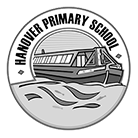History
Our approach
At Hanover, we recognise that children are naturally curious about the world and the people who came before them. Our History curriculum is designed to nurture that curiosity by exploring the past through engaging, enquiry-led topics. Each unit begins with a big question that encourages children to investigate, interpret evidence, and think critically about how the past has shaped the present. These questions guide learning across each topic and are supported by weekly investigations that help pupils develop their historical thinking and vocabulary over time.
While fully aligned with the National Curriculum, our topics go beyond required coverage to address broader themes and link meaningfully to other subjects such as Art, Design Technology, Religious Education, and English.
The curriculum is carefully structured around key areas of historical understanding:
-
What have we learnt from the achievements of early civilisations?
-
How did Britain become the nation we know today?
-
How has Islington changed over time?
-
What was life like in non-European societies?
-
How have the lives of significant people impacted ours?
We are particularly proud of our local history strand, which gives children a rich understanding of the area they live in. Through studies of Islington’s changing landscape, the Regent’s Canal, and the impact of events such as the Blitz or the Industrial Revolution on our local community, pupils explore how national history is rooted in the places they know.
By revisiting key concepts across year groups and engaging with diverse stories from Britain and beyond, pupils build deep, connected historical knowledge and the critical skills needed to question the past and understand its relevance to today.
Enquiry Questions
Each history topic at Hanover is guided by a compelling enquiry question that encourages children to think like historians — to question evidence, consider perspectives, and explore how the past has shaped the present. These overarching questions lead the learning across a unit and are broken down into smaller weekly questions, allowing pupils to explore complex ideas in manageable, engaging steps.
For example, in Year 4, the question “Why did invaders settle in Britain?” helps children investigate the arrival of the Romans, Anglo-Saxons and Vikings — exploring not only what happened, but why it happened and what changed as a result. In Year 6, questions such as “How is the history of the Kingdom of Benin linked to empire?” prompt pupils to make connections between non-European societies and global events like colonisation and resistance.
This enquiry-based approach is enriched by carefully chosen trips that provide powerful, first-hand experiences. Children explore reconstructed settlements at Butser Ancient Farm, handle real artefacts at the Petrie Museum, discover the realities of Victorian life at the Ragged School Museum and examine the impact of codebreaking at Bletchley Park — linked to our history of computing unit. These visits act as anchor points, making abstract historical concepts tangible and memorable.
This approach fosters curiosity and independence. Children are encouraged to engage actively by exploring evidence, seeking answers, and asking their own thoughtful questions. It supports deeper understanding of historical concepts such as change, continuity, cause and consequence, and significance — helping pupils build a rich, connected picture of the past.
By grounding our history teaching in enquiry — and connecting it with meaningful experiences — we aim not just to teach children what happened, but to empower them to ask why it matters.
Using Children’s Experience
At Hanover we believe that children’s understanding begins with their first-hand experiences – initially of their family and community, and then expanding outwards. Therefore we build a wide range of first-hand experiences into our topics. These include visits to museums, galleries and green spaces within London and beyond, as well as visits from specialists. Throughout all our Humanities topics we encourage them to express themselves, ask questions, and think about similarities and differences.
Meaningful Outcomes
Our topics are designed to lead towards a tangible outcome in which children share their learning with others. Outcomes might be putting on an exhibition for parents and other visitors; an assembly for the whole school; publishing and launching a book; or making a film and showing it at a school ‘film festival’.
Humanities in the EYFS
Children in Nursery and Reception develop their historical and geographical understanding through the Understanding of the World strand of the EYFS. Within this strand, children learn about both people and communities and the world. We talk about the personal histories of the children and of their families and communities. We invite family and community members into school to talk about aspects of their lives. Children explore the local environment, visiting both the urban and natural sights. They learn about the different places around the world that children visit or are interested in and we compare them to where we live. Children draw pictures and diagrams, make maps and models, write reports and take photographs to record their learning.

